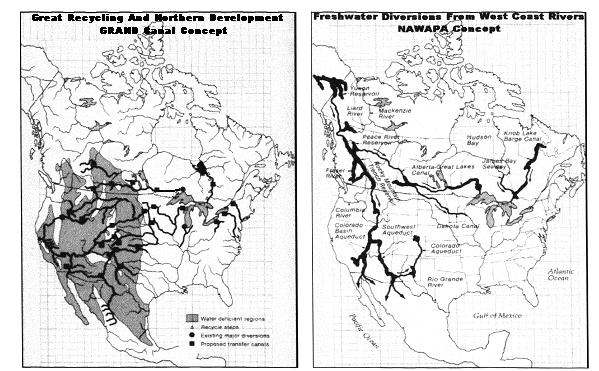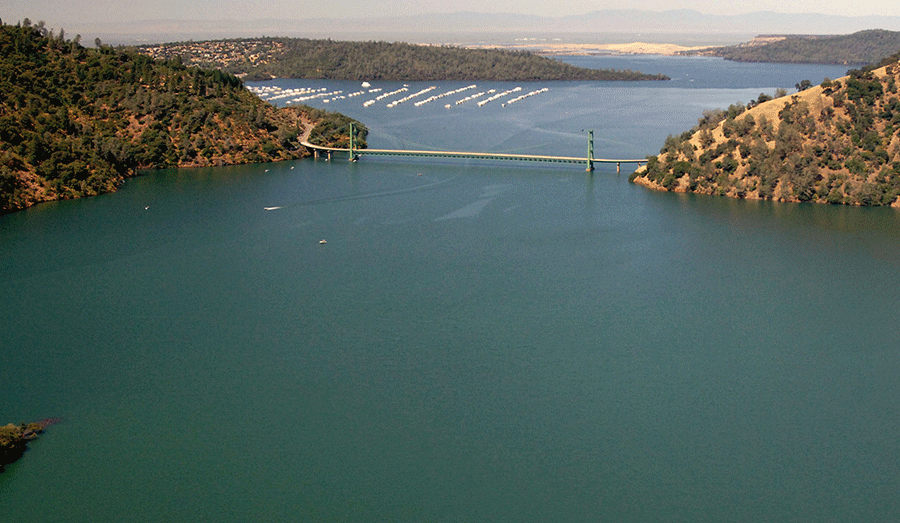When British Columbia residents heard that Nestlé was only being charged $2.25 per million litres to bottle up our water and sell it back to us, we were furious.

I, for one, wanted to do what this panda is doing.
We weren’t just angry because Nestlé has a terribly track record in their dealings with developing nations.
We weren’t just angry because B.C. is “renting out” access to our water for far less than other provinces.

We were angry because water is a part of B.C. culture.
Summer just isn’t summer if you don’t get in at least one camping trip and regular trips to the beach. Even Albertans come over to enjoy our lakes and rivers (and drive too slow around corners) in the summer. Most of these Albertans will explain that they come because Alberta lakes are “gross” (i.e. polluted). Despite their driving, we are generally happy to share our serene environment with visitors. After all, our province has the largest area of protected land in Canada.
Up until recently, many of us assumed that B.C. had similar protective policies to protect our water too, both above ground and below.
Because of our passion for our beautiful environment, B.C. residents were outraged to discover that our groundwater is, quite literally, being sold out from underneath us. This news prompted a petition on Sum of Us and led to a CBC debate on the issue.
During the CBC debate, one women pointed out a huge problem with the way B.C. residents responded to the news. She insisted that the problem isn’t what we charge for our water, it’s that we are talking about our water as though it’s a “commodity” we actually want to sell:
“…once you set a precedent of commercializing water in that way, as a commodity, then you set a precedent for other companies to come in… under free trade standards, if you let one [purchase water] you pretty much have to let the other[s].”
This is an issue that Steven Shrybman elaborates on in his “Legal Opinion Concerning Water Export Controls and Canadian Obligations Under NAFTA and the WTO.” In fact, Shrybman explains that our water sovereignty has been threatened ever since we signed the NAFTA agreement:
“Recent proposals to export Canadian water, and an investor-state suit under NAFTA concerning BC’s water export control measures, have revived Canadian concerns about the loss of public control over this vital resource. In response, the federal government has announced several initiatives including the negotiation of a federal provincial accord to ban bulk water exports, and strengthening the Boundary Waters Treaty Act. However, its strategy appears to have been determined by a reluctance to confront the reality that under NAFTA and WTO rules, water export controls are prohibited. Moreover, under NAFTA, Canada is also precluded from denying US investors and service providers the same access to Canadian water it allows Canadian companies, communities, and residents.”
Canada’s obligations under the NAFTA agreements “have often been ill-defined and vague.” While we’ve attempted to implement certain policies to protect our domestic water, experts fear that these policies are not enough.
This should be terrifying for all Canadians, since for the last few years our neighbours to the South have been suffering from water shortages that only seem to be getting worse. It may only be a matter of time before they look to Canada to satiate their water needs.
You may think that I’m being overly suspicious by implying that the United States wants to take our water, but in reality, they’ve already tried.
Back in the 70’s the US Army Corps of Engineers proposed the “North American Water and Power Alliance”. This “continental water management scheme” intended to divert water from rivers in Southern Alaska through the Rocky Mountain Trench into Northern Montana. Luckily, “environmental, economic and diplomatic issues” prevented the proposal from ever coming to fruition.

Similarly, in the 1990’s, Sun Belt Water Inc. made plans to ship tankers of freshwater from B.C. into the States. When B.C. reversed its water policy, the corporation took the Government of Canada to court, suing for access to our water.

Here’s the thing: I’m no expert on water, or economics, but I do live in British Columbia. As a B.C. resident it makes me furious that Nestlé gets to pay almost nothing to take our water. That said, I don’t want to lose perspective on the bigger issue here. Yes, we need to change the policy that allows Nestlé to make such a ridiculous profit on our water. However, changing our water policy needs to be about more than increasing fees for Nestlé; it needs to be about implementing policies that will protect our water from every business (and country) that wants to buy it out from under us.
How we go about doing that, I have no idea.




I bought and read the first three issues of Brian K. Vaughn’s We Stand on Guard on Friday and man, it’s so much more chilling having read this. The whole premise of the book is that in the future the US invades Canada to get at, you guessed it, our water. A little graphic, but I’d highly recommend it.
I will definitely have to check it out!
Pingback: Asmiov, Vonnegut, & Wendy’s: I For One Welcome Our Robot Overlords | Culture War Reporters